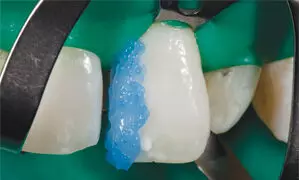- Home
- Medical news & Guidelines
- Anesthesiology
- Cardiology and CTVS
- Critical Care
- Dentistry
- Dermatology
- Diabetes and Endocrinology
- ENT
- Gastroenterology
- Medicine
- Nephrology
- Neurology
- Obstretics-Gynaecology
- Oncology
- Ophthalmology
- Orthopaedics
- Pediatrics-Neonatology
- Psychiatry
- Pulmonology
- Radiology
- Surgery
- Urology
- Laboratory Medicine
- Diet
- Nursing
- Paramedical
- Physiotherapy
- Health news
- Fact Check
- Bone Health Fact Check
- Brain Health Fact Check
- Cancer Related Fact Check
- Child Care Fact Check
- Dental and oral health fact check
- Diabetes and metabolic health fact check
- Diet and Nutrition Fact Check
- Eye and ENT Care Fact Check
- Fitness fact check
- Gut health fact check
- Heart health fact check
- Kidney health fact check
- Medical education fact check
- Men's health fact check
- Respiratory fact check
- Skin and hair care fact check
- Vaccine and Immunization fact check
- Women's health fact check
- AYUSH
- State News
- Andaman and Nicobar Islands
- Andhra Pradesh
- Arunachal Pradesh
- Assam
- Bihar
- Chandigarh
- Chattisgarh
- Dadra and Nagar Haveli
- Daman and Diu
- Delhi
- Goa
- Gujarat
- Haryana
- Himachal Pradesh
- Jammu & Kashmir
- Jharkhand
- Karnataka
- Kerala
- Ladakh
- Lakshadweep
- Madhya Pradesh
- Maharashtra
- Manipur
- Meghalaya
- Mizoram
- Nagaland
- Odisha
- Puducherry
- Punjab
- Rajasthan
- Sikkim
- Tamil Nadu
- Telangana
- Tripura
- Uttar Pradesh
- Uttrakhand
- West Bengal
- Medical Education
- Industry
Elevated HbA1c, Total cholesterol and TG linked to thyroid cancer risk among diabetes patients

A new study found that elevated serum levels of Glycated hemoglobin (HbAlc), total cholesterol (TC), and triacylglycerol (TG) are risk factors for the development of thyroid cancer in type 2 Diabetics. Even though the exact mechanism by which they cause is not yet known they can be used as markers for the development of thyroid cancer in Type 2 Diabetics. The study results were published in the journal Disease Markers.
Some of the common diseases of the endocrine system are thyroid cancer and Diabetes. With the increasing trend of thyroid cancer in diabetics, despite any interventions, the mortality rate has increased due to various other complications. Past research has shown that Long-term hyperglycemia and hyperlipidemia increase the incidence and risk of related cancers. Hence researchers from the University of Electronic Science and Technology of China, Chengdu, China have conducted a study to investigate the relationship between changes in blood glucose and blood lipid levels and the risk of thyroid cancer in patients with type 2 diabetes mellitus between June 2018 and February 2021.
Nearly 159 patients with type 2 diabetes were recruited and assigned to the observation group with 136 patients having type 2 diabetes without thyroid cancer as the nonthyroid cancer group and 23 patients having type 2 diabetes complicated with thyroid cancer as the thyroid cancer group, and 120 healthy subjects as the control group. Serum levels of glycated hemoglobin (HbAlc), total cholesterol (TC), triacylglycerol (TG), high-density lipoprotein cholesterol (HDL-C), and low-density lipoprotein cholesterol (LDL-C) were detected and compared. The correlation between serum HbAlc level and TC, TG, HDL-C, and LDL-C levels in patients with type 2 diabetes mellitus was analyzed using the Pearson method. The influencing factors of thyroid cancer in patients with type 2 diabetes mellitus were analyzed using the multivariate logistic regression analysis.
Key findings:
- Patients with type 2 diabetes mellitus in the observation group had substantially higher blood HbAlc levels and thyroid cancer incidence than those in the control group.
- Patients with type 2 diabetes mellitus in the observation group had considerably higher TC, TG, and LDL-C values than those in the control group, but their HDL-C levels were significantly lower.
- Serum HbAlc levels in people with type 2 diabetes were positively associated with TC and TG levels, negatively correlated with HDL-C levels, and not correlated with LDL-C levels, according to the correlation analysis.
- Patients with type 2 diabetes mellitus in the thyroid cancer group had considerably greater levels of serum HbAlc, TC, and TG than those with type 2 diabetes without thyroid cancer, whereas their levels of HDL-C were significantly lower.
- There was no significant change in the level of LDL-C.
- Serum HbAlc, TC, and TC levels were all risk factors for thyroid cancer in patients with type 2 diabetes mellitus, while serum HDL-C level was a protective factor for thyroid cancer in patients with type 2 diabetes mellitus as per the multivariate logistic regression analysis.
Thus, thyroid cancer in patients with type 2 diabetes may be related to elevated serum HbAlc, TC, and TG levels. The risk of thyroid cancer in patients with type 2 diabetes may shoot up with increased serum levels of HbAlc by regulating blood lipid levels, thus serving as a marker to evaluate the risk of thyroid cancer in patients with type 2 diabetes mellitus.
Further reading: Zhang B, Song Z, Ren L, et al. Relationship between Changes in Blood Glucose and Blood Lipid Levels and the Risk of Thyroid Cancer in Patients with Type 2 Diabetes Mellitus. Dis Markers. 2023;2023:4814328. Published 2023 Apr 11. doi: 10.1155/2023/4814328
BDS, MDS
Dr.Niharika Harsha B (BDS,MDS) completed her BDS from Govt Dental College, Hyderabad and MDS from Dr.NTR University of health sciences(Now Kaloji Rao University). She has 4 years of private dental practice and worked for 2 years as Consultant Oral Radiologist at a Dental Imaging Centre in Hyderabad. She worked as Research Assistant and scientific writer in the development of Oral Anti cancer screening device with her seniors. She has a deep intriguing wish in writing highly engaging, captivating and informative medical content for a wider audience. She can be contacted at editorial@medicaldialogues.in.
Dr Kamal Kant Kohli-MBBS, DTCD- a chest specialist with more than 30 years of practice and a flair for writing clinical articles, Dr Kamal Kant Kohli joined Medical Dialogues as a Chief Editor of Medical News. Besides writing articles, as an editor, he proofreads and verifies all the medical content published on Medical Dialogues including those coming from journals, studies,medical conferences,guidelines etc. Email: drkohli@medicaldialogues.in. Contact no. 011-43720751




